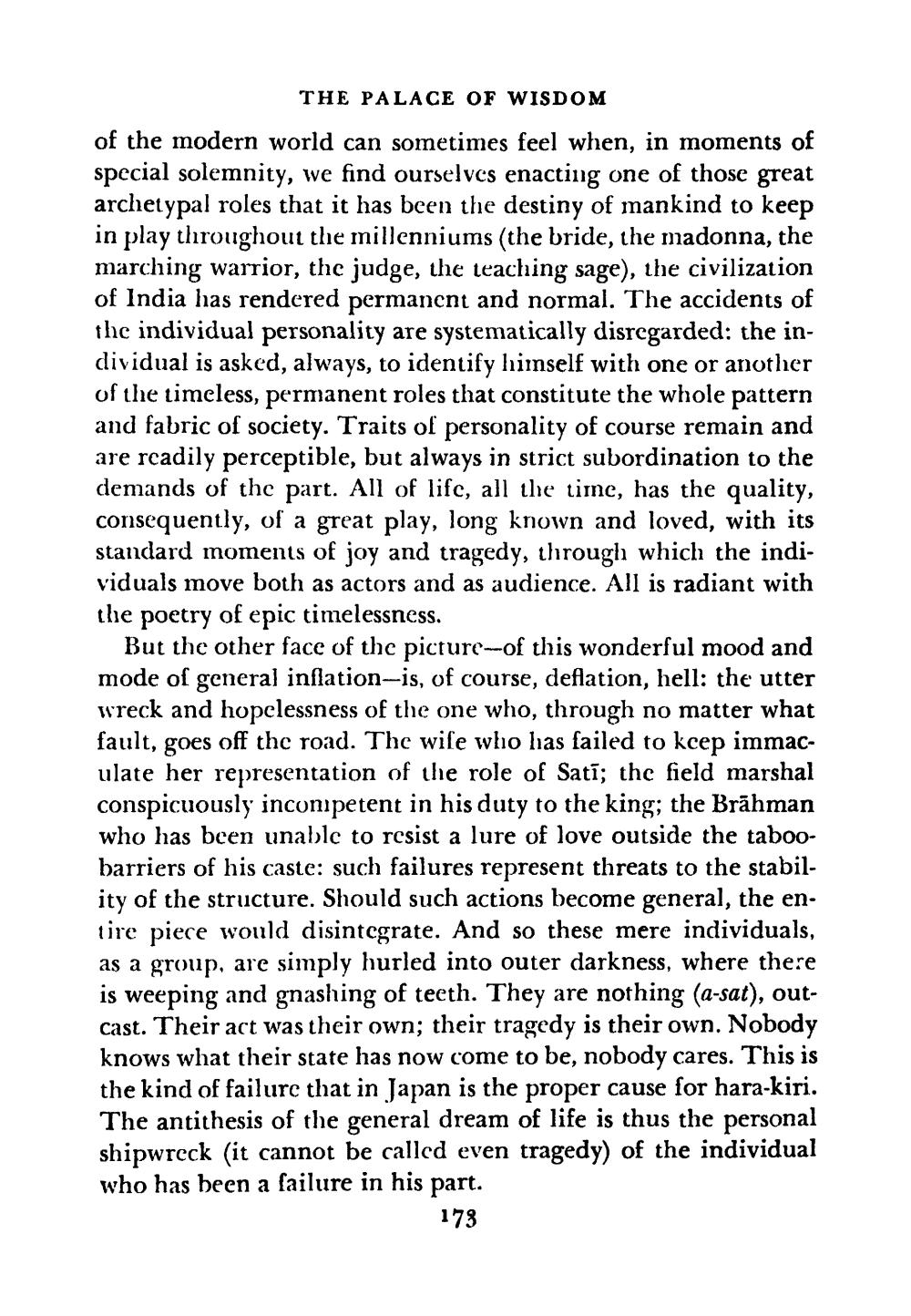________________
THE PALACE OF WISDOM
of the modern world can sometimes feel when, in moments of special solemnity, we find ourselves enacting one of those great archetypal roles that it has been the destiny of mankind to keep in play throughout the millenniums (the bride, the madonna, the marching warrior, the judge, the teaching sage), the civilization of India has rendered permanent and normal. The accidents of the individual personality are systematically disregarded: the individual is asked, always, to identify himself with one or another of the timeless, permanent roles that constitute the whole pattern and fabric of society. Traits of personality of course remain and are readily perceptible, but always in strict subordination to the demands of the part. All of life, all the time, has the quality, consequently, of a great play, long known and loved, with its standard moments of joy and tragedy, through which the individuals move both as actors and as audience. All is radiant with the poetry of epic timelessness.
But the other face of the picture-of this wonderful mood and mode of general inflation-is, of course, deflation, hell: the utter wreck and hopelessness of the one who, through no matter what fault, goes off the road. The wife who has failed to keep immaculate her representation of the role of Sati; the field marshal conspicuously incompetent in his duty to the king; the Brahman who has been unable to resist a lure of love outside the taboobarriers of his caste: such failures represent threats to the stability of the structure. Should such actions become general, the entire piece would disintegrate. And so these mere individuals, as a group, are simply hurled into outer darkness, where there is weeping and gnashing of teeth. They are nothing (a-sat), outcast. Their act was their own; their tragedy is their own. Nobody knows what their state has now come to be, nobody cares. This is the kind of failure that in Japan is the proper cause for hara-kiri. The antithesis of the general dream of life is thus the personal shipwreck (it cannot be called even tragedy) of the individual who has been a failure in his part.
173




